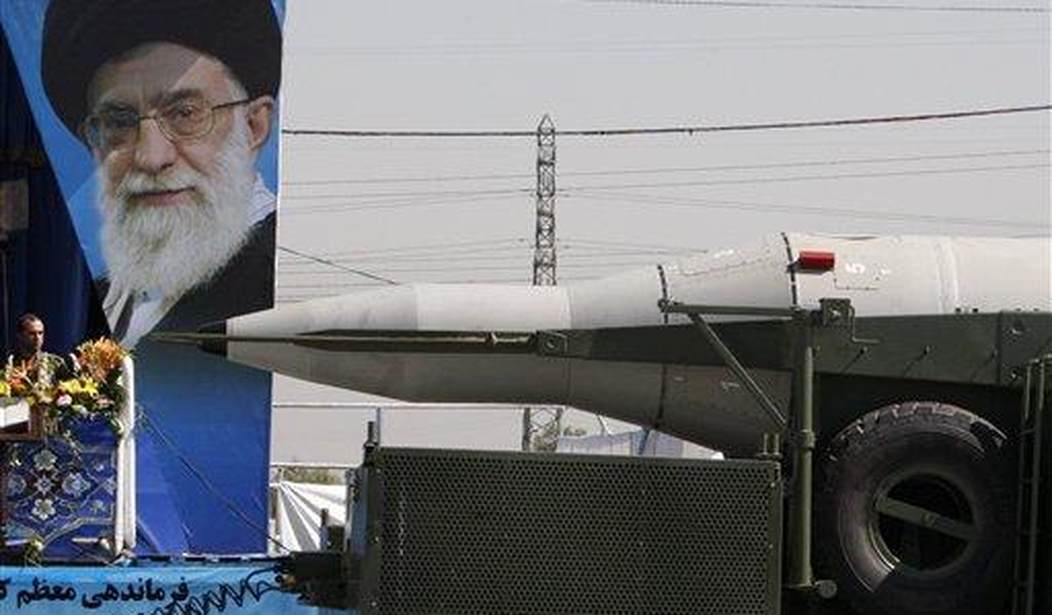Iran called the cyberattack on its Natanz nuclear facility “nuclear terrorism.” Hysteria aside, Israel’s brilliant strategy to go after the centrifuges Iran uses to enrich uranium will have a cost.
Iran announced that it would raise enrichment levels to 60 percent — making a bomb an all but a foregone conclusion. The Iranians had been enriching uranium to 20 percent since January.
While it would take Tehran a few weeks to spin 20 percent enriched uranium up to the 90 percent bomb-grade level of enrichment, it would take a matter of days — perhaps hours depending on centrifuge numbers and efficiency — to spin up uranium from 60 percent to 90 percent.
There’s been an undeclared naval war between Israel and Iran that’s been underway for the last few months. But Joe Biden continues his quest to restore the useless nuclear deal — a task now made moot by Iran’s enrichment plans.
The fight between Iran and Israel plays out across multiple theaters. Since 2019, Israel has attacked ships carrying Iranian oil (mainly to Iranian ally Syria) and weapons through the eastern Mediterranean and Red Seas. Iran is responding in kind. In early April, the Iranian ship, the Shahr e Kord was struck in an Israeli mine attack. Iran, which always responds clandestinely and with no claims of responsibility, reportedly struck back against an Israeli-owned container ship, the Lori.
On land, sea and in cyberspace, the Israelis and Iranians have been going at it for years. Now, as Tehran and Washington start to circle each other diplomatically, the Mossad and Iran’s various foreign and security arms — not least the Quds force — continue to stalk each other militarily. This, beyond mere questions of enrichment levels and sanctions, is what Joe Biden must negotiate if he is to find any sort of solution to a problem that has dominated the 21st century and shows no signs of ending any time soon.
Biden began by demanding Tehran return to the conditions of the 2015 agreement on its nuclear program. This would include not enriching uranium by more than 5 percent, limiting centrifuge development, and allowing open inspections by the IAEA at all of its nuclear facilities. Iran demanded the U.S. lift all sanctions before they would discuss it.
Biden blinked first. He announced that the U.S. would lift some sanctions “not related” to the nuclear agreement. Seeing this, Israel’s response was almost immediate. A cyberattack recently damaged the Natanz nuclear facility and an unknown number of centrifuges. U.S. intelligence says it will set the Iranian nuclear bomb program back nine months.
Iran said not all the centrifuges had been damaged and some production could restart next week. Iranian intelligence claimed to have identified an individual inside the plant’s hall who was responsible for the sabotage by disrupting the flow of electricity, but the account was being treated with caution and may be intended to show the plant was not vulnerable to an external cyber-attack.
Are we sure it’s Israel that’s responsible?
Israel imposed no censorship restrictions on coverage as it had often done after similar previous incidents and the apparent attack was widely covered by Israeli media. Public radio took the unusual step of claiming that the Mossad intelligence agency had played a central role.
Israeli Prime Minister Benjamin Netanyahu said later Sunday that “the struggle against Iran and its proxies and the Iranian armament efforts is a huge mission”.
“The situation that exists today will not necessarily be the situation that will exist tomorrow,” he added, without elaborating.
It seems faintly ridiculous that the talks between Iran and the EU/U.S. are continuing in Vienna. In effect, they are discussing the surrender of the West to Iran’s nuclear ambitions. Iran has passed the point of no return in its nuclear program.
Or, at least, they’ve passed the point where Israel won’t prevent them from further developing the first nuclear bomb possessed by a terrorist state.










Join the conversation as a VIP Member